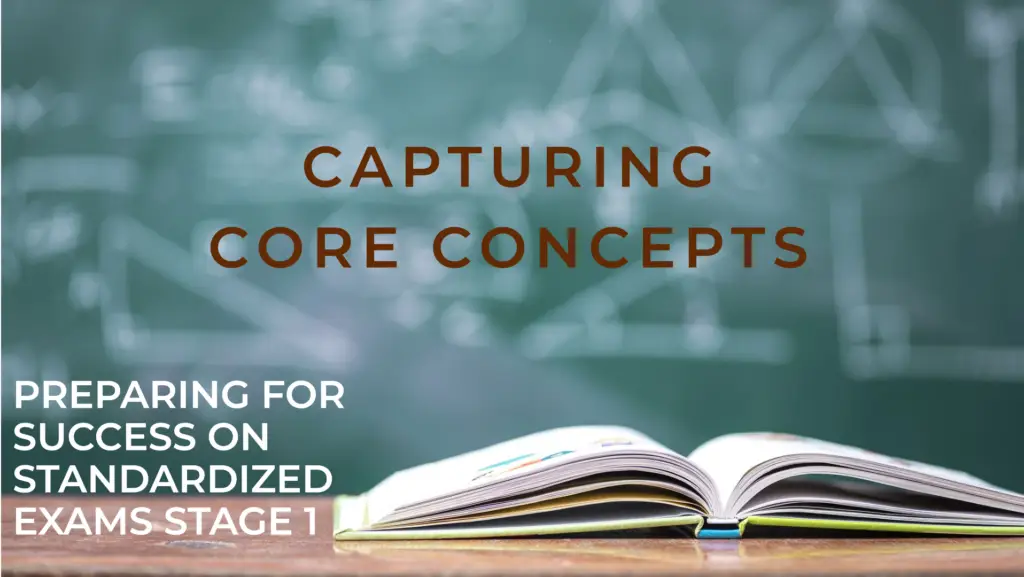
Capturing Core Concepts: Preparing for Success on Standardized Exams Stage 1 of 4
Many in our society have come to fear a standardized exam that looms ahead as if it is a nightmare incarnate, ready to stop us in our tracks and dash aside our hopes for advancement and success.
While I have had my fair share of struggles along the way, I have always held a different viewpoint… standardized exams are an opportunity for advancement like few others we’re offered. How often in life are we given a chance to put our knowledge and reasoning skills to the test against those from more privileged backgrounds?
While wealth affords additional advantages such as hiring private tutors, what I have found more often than not is that students don’t lack the knowledge or resources needed for success, they lack a strong plan on how they are going to spend their time when they do sit down to prep.
Before I jump into my four stages for exam preparation, I’d like to cover a couple overarching points. First, the idea of “it’s a marathon, not a sprint” is 100% true. The best success on standardized exams is achieved with long-term, well-laid plans. Second, you’re not going to be doing the same kind of preparation activities the entire time, hence, the four stages. Success on the actual exam takes the right combination of knowledge, skills, and attitudes, which you develop at different points throughout the preparation.
Stage 1 – Capturing Core Concepts
Before you worry about taking full-length exams, or even practicing test-like questions, it’s important to start with a review of the core concepts covered by the exam. The best place to start is the exam maker’s website (i.e., https://www.aamc.org for the MCAT), which will have a document detailing what concepts will potentially be tested on the exam, as well as links to free and low-cost resources. If your preference is instead a published set of test prep books or review videos from a third-party company, then now would be the time to purchase ONE and go through it in its entirety.
Your first mission: make sure that it makes sense.
Do not expect yourself to remember all the details from this first pass. In fact, focus less on memorization and more on understanding. Look for patterns between concepts and cross-overs between different chapters or videos.
Your second mission: reinforce weak points and high-yield topics.
Memorization is best developed through reinforcement of concepts over time via spaced repetition, a learning strategy of reviewing information at increasingly longer intervals. However, all the concepts that CAN be tested on an exam WILL NOT be tested on any given individual exam. Additionally, not all concepts tested on an exam are tested with equal distribution. Thus, you should not put in the work to reinforce all concepts equally.
Focus your time on this second pass reinforcing the concepts that give you the most trouble as well as reviewing any high-yield topics (those tested most often), regardless of your relative strength with it. At this point, you can see if alternative sources provide explanations to difficult topics that better resonate with you, but I still wouldn’t open the pandora’s box of exploring too many different resources.
Here’s the next tough part… knowing when to move away from the comfort of your Anki decks (digital flashcards, for those not familiar) and on to a question bank. Should you wait for another pass, or maybe two, just to make sure you really know it? No. The time is now.
So let’s rip off the band-aid and start taking some practice quizzes!
